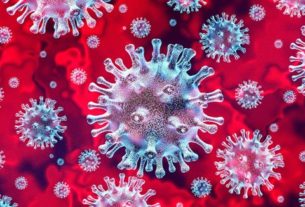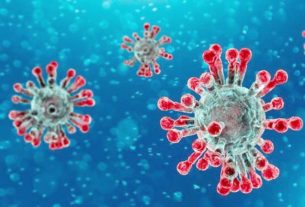From Our Bureau
29TH JULY 2020
The Corona Virus (COVID-19) pandemic situation remained grim globally, with the confirmed cases across the world soaring to 1,65,58,289 and the death toll rising to 6,56,093 in the 216 affected countries and territories, according to the latest update from the World Health Organization (WHO).
Globally, American region continued to be the worst-hit with 88,40,524 confirmed cases and 3,42,635 deaths. Europe came next with 32,83,277 confirmed cases and 2,11,616 deaths. South-East Asia region’s tally stood at 18,92,056 confirmed cases and 42,233 deaths.
Eastern Mediterranean region reported 15,07,734 confirmed cases and 38,815 deaths. African region registered 7,38,344 confirmed cases and 12,519 deaths. Western Pacific region recorded 2,95,613 confirmed cases and 8,262 deaths. WHO Risk Assessment at global level remained very high.
The WHO Regional Office for Europe urges Turkmenistan to activate critical measures to prepare for COVID-19 outbreaks. To date, Turkmenistan has not reported any confirmed COVID-19 cases to WHO. However, the country has recently activated measures to prevent the transmission of respiratory infections within communities.
The COVID-19 pandemic is threatening progress made towards eliminating hepatitis B. In observance of World Hepatitis Day on 28th July, WHO has called for united and fast-tracked action to stop mother-to-child transmission of viral hepatitis. “No infant should grow up only to die of hepatitis B because they were not vaccinated,” said WHO Director-General Dr Tedros Adhanom Ghebreyesus.
The WHO Regional Office for the Americas collaborates with the World Food Programme and the Canadian Government to facilitate delivery of Personal Protective Equipment (PPE) to support Trinidad and Tobago’s COVID-19 response. The supplies were procured via the UN Supply Portal and the PAHO Strategic Fund, which facilitates procurement of diagnostics, ventilators, and PPE for the COVID-19 response.
The National Center for Laboratory and Epidemiology (NCLE), the Ministry of Health of Lao People’s Democratic Republic, with support from the WHO Regional Office for Western Pacific, are working with communities to ensure early detection of potential outbreaks of COVID-19 in Lao PDR.
Subject in Focus: Safe Eid al Adha practices in the context of COVID-19
The Eid al Adha, also called Eid Qurban (“Feast of the sacrifice”), is a celebration observed by Muslims worldwide, during which families and friends unite to pray and give alms, usually meat from animals that have been sacrificed (hence the name).
Festivities may last from one to a few days, and are characterized by many social and religious gatherings. During the COVID-19 pandemic, precautions need to be taken to prevent transmission of the virus.
On 25th July 2020, WHO published interim guidance entitled Safe Eid al Adha practices in the context of COVID-19 that provides guidance applicable across different national contexts.
WHO recommends that any decision on mass gatherings should be based on a careful assessment of all risk factors associated with the event. Guidance documents and tools have been developed to this effect. Steps to be taken include risk evaluation, risk management and risk communication – the latter of which has the aim of sharing with communities the rationale for the decisions taken, the measures applied and any residual risk.
Based on this risk-based approach, the decision may be taken to cancel a planned event or make it virtual. If, on the contrary, it is decided to proceed with an event, key precautions should be implemented, including basic measures for enforcing physical distancing of at least one metre (three feet) between people at all times, frequent hand cleaning, and respiratory etiquette.
Other recommendations relate to: The venue, such as whether to hold the event outdoors and/or make it as short as possible; regulate the number and flow of people entering, attending and departing from the event; enforce routine cleaning;
Specific population groups, such as advising those who feel unwell or have symptoms suggestive of COVID-19 and those at higher risk of developing severe illness from COVID-19 (older individuals and/or individuals with underlying medical conditions) to refrain from attending these gatherings.
The slaughter of an animal is central to Eid al Adha. As such, the interim guidance also focuses on precautions that should be observed on these occasions. Although evidence indicates that infected humans can infect other mammals, it remains unclear if the reverse can also occur. Animals that have been shown to be able to be infected by SARS-CoV-2 include dogs, cats and farmed mink and these are not typically sacrificed during Eid al Adha.
Nevertheless, it is well known that several infectious diseases can be transmitted at the human-animal interface. As such, countries are advised to follow general precautionary measures relating to animal management, meat processing, and marketplaces as recommended by national and international food safety and hygiene regulations.
Precautions should also be applied by the faithful when distributing meat to those in need, so that remembrance, charity and care for others can safely remain at the core of Eid al Adha’s celebrations during the COVID-19 pandemic. (eom)


